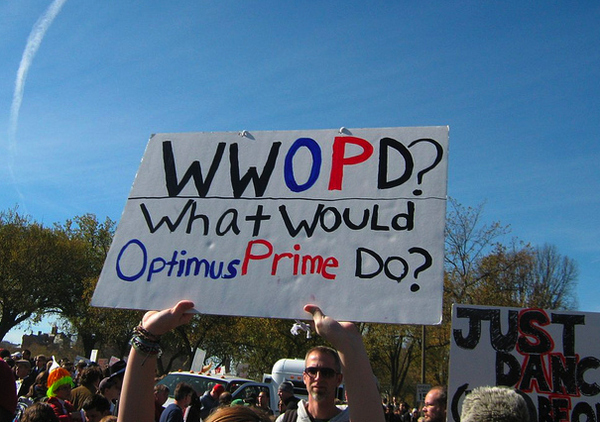Here’s what The Atlantic gave me as a birthday gift last week, an utterly dull and middlebrow list of “10 Masterpieces of Graphic Nonfiction”. The complete list:
- The Beats – Harvey Pekar et all: a history/biography of the Beats writers
- Edible Secrets – Mia Partlow, Michael Hoerger and Nate Powell: food based extracts from the CIA files
- A.D.: New Orleans after the Deluge – Josh Neufeld: Hurricane Katrina
- The 14th Dalai Lama – Tetsu Saiwai: the authorised manga biography of the Dalai Lama
- The Stuff of Life – Mark Schultz, Zander Cannon, Kevin Cannon: a biology textbook
- Smarter Comics Business Books – no idea: all the same sort of tedious business books now in comics format
- The Influencing Machine – Brooke Gladstone & Josh Neufeld: why we mistrust news media, written by an NPR commentator
- The Photographer – Didier Lefèvre & Emmanuel Guibert: a photographer’s journey through war torn Afghanistan, set in 1986
- Burma Chronicles – Guy Delisle: potted history of Burma and its dictatorship
- The Elements of Style Illustrated – Strunk and White, adapted by Maira Kalman: that pernicious old style guide illustrated
So these are the finest examples of “comic books as journalism” The Atlantic can think off: adaptations of prose books, some treatments of not too controversial current affairs/political/historical issues, pop science and biographies of people everybody knows. Nothing too outre stylistically speaking either, all these books can be picked up and read easily by people not familiar with comics with no problems. It’s all safely middlebrow in both subject matter and execution, kinda dull.
The worst thing about this list is that this insipidness is a feature, not a bug. As the writer herself acknowledges in a comment, she has deliberately left out certain authors and books for fear of being controversial:
You guys are right–I almost included Footnotes in Gaza but chickened out at the last moment because the topic is so polarizing. I was already expecting heat from rank-and-file fanboys/girls about the overall list and didn’t want to brave the Palestine question as well.
That’s what you call self censorship. It’s not just that Joe Sacco is one of the best and most influential non-fiction cartoonists around, somebody who should not be left off any such top ten list, but as opposed to the majority of people on The Atlantic‘s list, he has actually done comics journalism. He went to the West Bank, Gaza, Bosnia, talked to people there, tried and confirm their stories, then distilled them into a coherent narrative, just as a prose journalist would do. Nobody mentioned above comes close to doing this. He’s not the only high profile creator missing: there’s no trace either of Larry Gonick, who with Jaxon, another missing giant, pioneered the idea of doing long form comics history. Also missing: Ted Rall’s account of his journey to Afghanistan, which happened not when it was the Soviets bombing the shit out of that country, but Uncle Sam. I would like to think its omission on this list was just ignorance, but I suspect it was political…
So yeah, that’s The Atlantic in a nutshell: bland, boring, politically constrained, trying to be “hip” but failing miserably.
